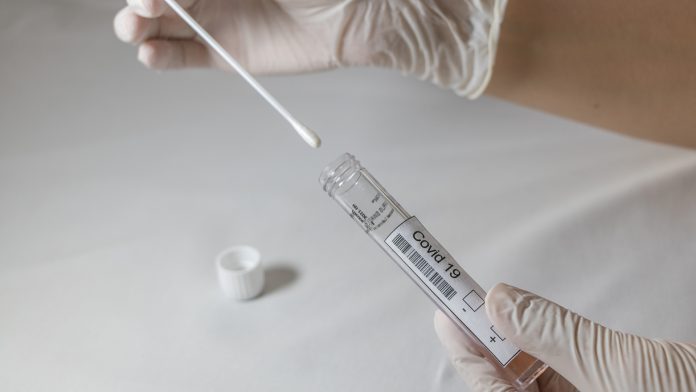
Lifesciences specialist XPhyto Therapeutics has recently acquired 3a Diagnostics in a bid to advance its infection-prevention solutions.
The move is the latest development in XPhyto’s strategy to become a global leader in the disease detection market. 3a Diagnostics, based in Germany, is recognised worldwide for its medical innovations in disease detection.
Until now, 3a has acted as an exclusive joint venture collaborator in the development of COVID-19 screening diagnostics and other disease-detecting technologies for the European market. It also owns all the intellectual property (IP) for these innovations, which were licensed to XPhyto for commercial use.
3a Diagnostics is a commercial enterprise facility focussed primarily on the diagnostics and biosensor markets. With this new acquisition, XPhyto will begin the process of bringing these biosensor technologies to market.
XPhyto’s Germany-based COO, Wolfgang Probst, says that the company is already successfully leveraging 3a’s proprietary skillset with the recent commercial launch of what they hope may be the world’s fastest portable PCR (molecular) COVID-19 testing system. These test kits are already in use in ten testing facilities in Berlin, which have taken delivery of the first 1,000 units for evaluation and planning.
The company is also working towards the commercialisation of a disposable COVID-19 screening device, known as a lateral flow assay, that functions in a similar manner to a basic pregnancy test.
Biosensor advancements
Aside from its COVID-19 detection tools, 3a is best known for the development of innovative biosensor screening tests.
3a has developed a wide range of peptide-based biosensor screening tests for bacterial and viral infectious diseases. These biosensors are a combination (chemical conjugate) of a pathogen-specific peptide and an extreme (but safe) bitter compound. When the peptide is exposed to specific bacterial and viral enzymes, this triggers biosensor activation and the release of the extreme bitter-tasting compound, alerting the user to the presence of a specific pathogen.
This oral screening technology is designed to instantly detect a variety of bacterial and viral infectious diseases. 3a’s development pipeline includes biosensor products for influenza A, stomatitis, periimplantitis, periodontitis, and group A Streptococcus.
The stated goal of XPhyto is to develop rapid, low-cost, easy-to-use pathogen screening tests for pandemic and other health applications throughout Europe and the Middle East. XPhyto is now integrating 3a’s biosensor technology into its own proprietary oral drug delivery platform, creating ultra-low-cost oral dissolvable screening tests.
Covid-ID Lab: The portable PCR test
Earlier this year, XPhyto launched Covid-ID Lab in Germany as a commercial in-vitro diagnostic (CE-IVD) test – one that is registered within the European Union. This portable point-of-care PCR testing system enables fast, highly accurate testing in a range of real-world settings. This effectively decentralises the entire testing process, making it logistically possible to provide on-site testing and results at numerous locations simultaneously.
Generating a definitive diagnosis within just 25 minutes, this portable Covid-ID Lab has the capacity to simultaneously process up to 96 test samples within 25 minutes, depending on the equipment and staffing.
Wolfgang Probst, COO of XPhyto, said: “Covid-ID Lab is a specialised product that is designed to fill the market gap between disposable antigen tests and centralised automated PCR systems.
“Examples of target customers are airports, cruise lines, pharmacies, medical clinics, and any industrial or education site that requires rapid, definitive results. It is also ideal for pop-up testing centres. In fact, with our technology, we expect to be able to run small satellite labs. This opens up many potential testing labs throughout Germany.
“Our tests find coronavirus-infected people before an antigen test can, which only kicks in when a higher viral load is reached. As a result, many people with the disease have a negative test, feel safe, go shopping, and spread the virus in the process.
“With XPhyto’s test, the genetic material of the viruses is amplified to such an extent that SARS-CoV-2 can be detected even if only small amounts are present. This is how PCR works and why it is the diagnostic standard.”
Probst said that the company expects to see strong adoption of the test in densely populated metropolitan areas and at transportation hubs, such as train stations and airports, where there is high demand for rapid, accurate, and cost-effective tests.
Self-use COVID-19 screening
As previously mentioned, XPhyto is developing a disposable COVID-19 screening device, which is a project that it initiated with 3a in response to the declaration of a global pandemic.
As with the PCR test kit, this screening device is also ideal for rapidly detecting viral RNA. The device, which produces results in 15 minutes or less, is designed for at-home use, triage situations, and for identifying people who need follow-up testing.
Probst says that the product’s cost will likely be as low as a pregnancy test when produced at scale, and that the pricing will be comparable to industry norms for other commercially available lateral flow assay tests, like the home-use pregnancy ones.
Rapid Testing
By being able to test, trace, and quarantine anyone who is sick, health authorities should be able to break the chains of transmission and bring COVID-19 infection rates and their variants under control.
XPhyto expects to play an important role in taming the pandemic in Europe and elsewhere by providing the equipment needed to test and trace COVID-19 quickly and easily. Additionally, the company also aims to facilitate the early detection of many other bacterial and infectious diseases with its enzyme-based biosensor technologies.
























